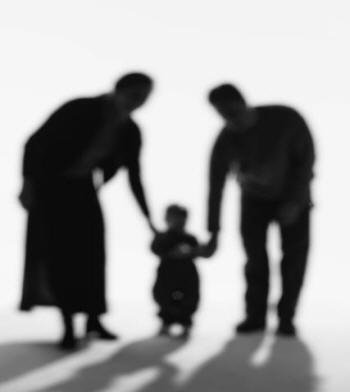
People sometimes ask: “How much do you blame your parents for your problems in the present, arising from childhood?”
All I can reply is: Hold your parents accountable for anything wrong they said or did. But hold yourself accountable for undoing the damage.
Children are vulnerable. Infants are born (I maintain) tabula rasa. This means “blank slate.” Parents in particular write on that blank slate whatever they wish.
But even young children have their own temperament. As they mature and age, they become more and more capable of forming concepts. This does not guarantee true or rational thinking, but it does allow for independent thinking. The capacity for abstract independent thought is there around the early teens, according to cognitive research done by the psychological researcher Jean Piaget. Young adults — in today’s world more than ever, with all the media and communication — are free to think for themselves.
If you assume, as I do, that emotions arise from thoughts and ideas, then you cannot blame your present state of consciousness, psychological health (or lack thereof) on your parents. Their time of influence has come and gone. Chances are, especially in today’s world, you have been exposed to all kinds of other intellectual and/or psychological influences since that time.
You might think that being a therapist / life coach for 25 years has shown me how much people have been shaped and determined by their parents. Not so. Getting to know people’s personal histories and psyches has taught me just how heroically independent people are capable of being — if they’re willing to think and question. Unless you’re exposed to extraordinarily benevolent and thoughtful, rational people as parents — which does happen, and certainly is possible — you’re in a position of having to question much that you were taught. As for being exposed to a “good parent” — what does “good” actually mean? It means a parent who supports, encourages and teaches you the most important skill of all: How to think, objectively and intelligently (and to find others who can help you with this skill as well.)
The problem with dysfunctional or abusive parents — the very essence of what makes them dysfunctional or abusive — is that they delcare war on your capacity to think and your psychological need/requirement to be independent. They probably do this to you because they do this to themselves, and their abuse or negligence towards you is an extension of their own self-negligence. It’s important to stand back and judge your parents objectively, ideally in your late teens or early 20s, and see them for whom they are: good, bad or a complex mixture. I find that people who don’t do this are the ones more prone to get stuck in unhealthy interpersonal cycles where they “play out” with new people the kinds of unresolved conflicts they never objectively dissected about their own parents. It’s surprisingly easy to avoid a lot of pain later in life, in your personal relationships, if you just take the time to figure out what you think, and conclude, about your first experiences with interpersonal relationships and human intimacy. Once done, you’re free to sail into new waters, away from what you’ve known in the past (or not) — and to know precisely why.
A lot of people get stuck. They fail to introspect and find out better methods of thinking and coping than what their parents first showed them. As a result of disappointments in career and/or personal life, they look for someone or something to blame. This is the first mistake. It’s not necessary to blame anyone. It is necessary to explain. It is necessary to hold yourself responsible for any errors you’ve made, including erroneous ideas or attitudes fostered by parents that you are now free to reject. This can take some time and trouble, but it’s possible and necessary. Nobody (leaving aside fraud or physical coercion) can stop you from doing this. Only you can do it, or stop yourself from doing it.
It’s absurd to conclude, “My parents were negligent. Therefore I’m ruined forever.” Nobody has that power over you — not even your parents. When we think of a little child — ourselves, at one time, or any little child today — we understandably think of a helpless, vulnerable little person. But don’t project that helplessness and vulnerability onto yourself, an adult in the present. It’s a big error. And if as a result of that error you conclude that you’re ruined forever, and therefore your parents must be blamed, you’re doing yourself an injustice. You might think you’re bringing justice to your parents, but in fact you’re harming yourself.
Should you look at reality clearly, and plainly acknowledge any wrongdoing or negligence of your parents? And even feel free to tell them so? Of course. But that’s not the same as blaming them for ruining you. You’re not ruined. The fact that you can even think for yourself at all is proof that the most important part of you was saved. The rest is up to you.
Be sure to “friend” Dr. Hurd on Facebook. Search under “Michael Hurd” (Rehoboth Beach DE). Get up-to-the-minute postings, recommended articles and links, and engage in back-and-forth discussion with Dr. Hurd on topics of interest.
